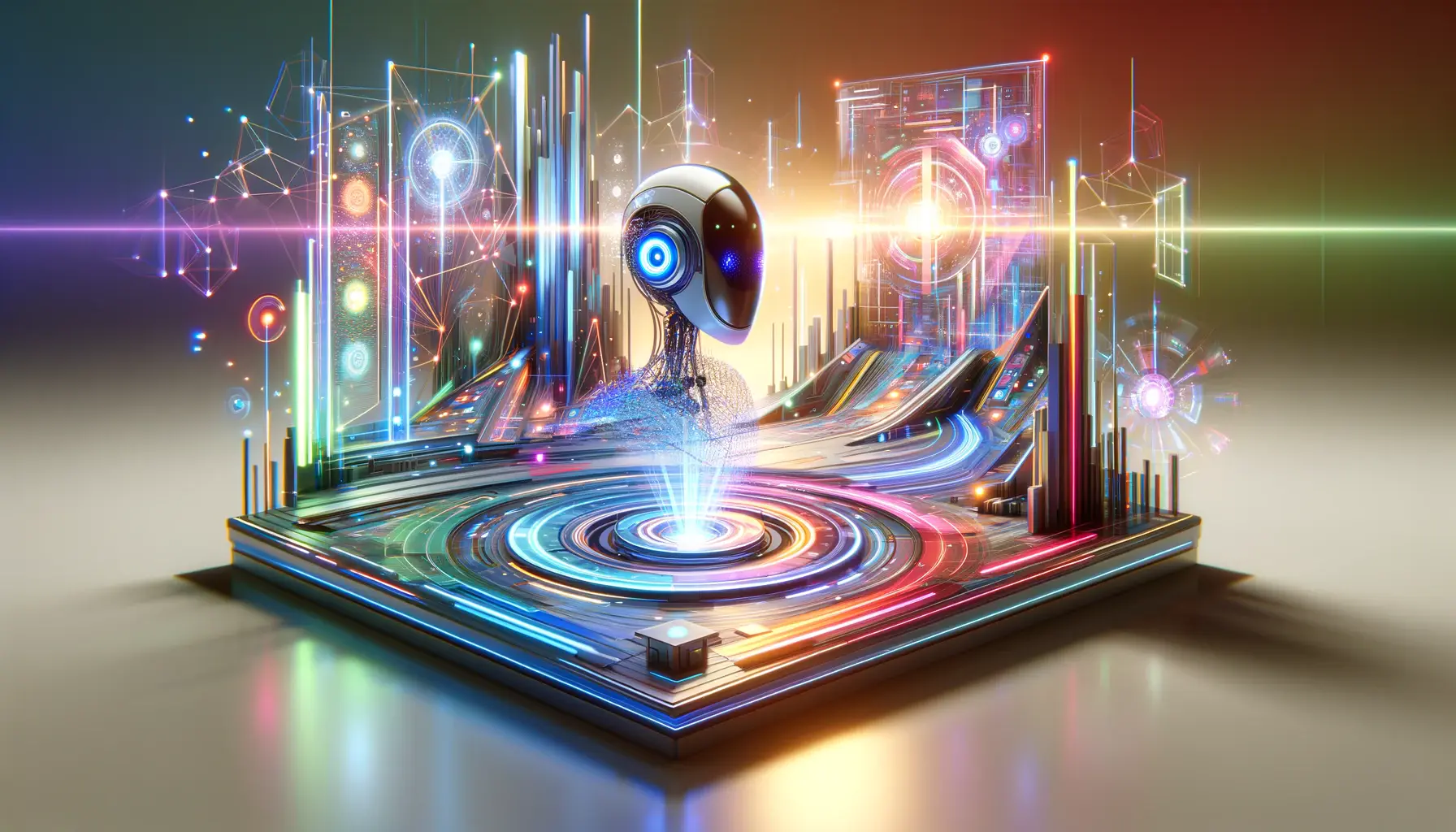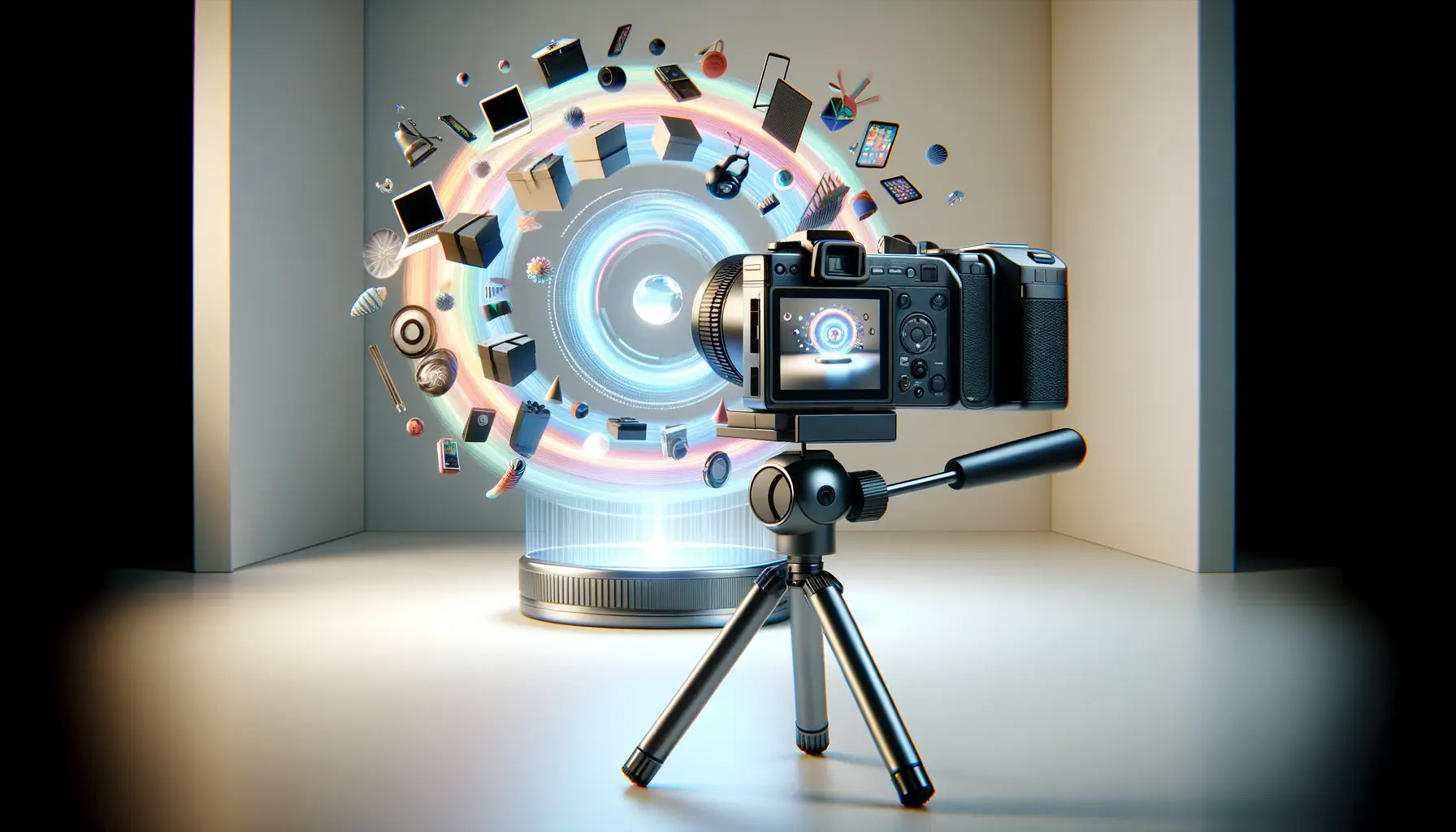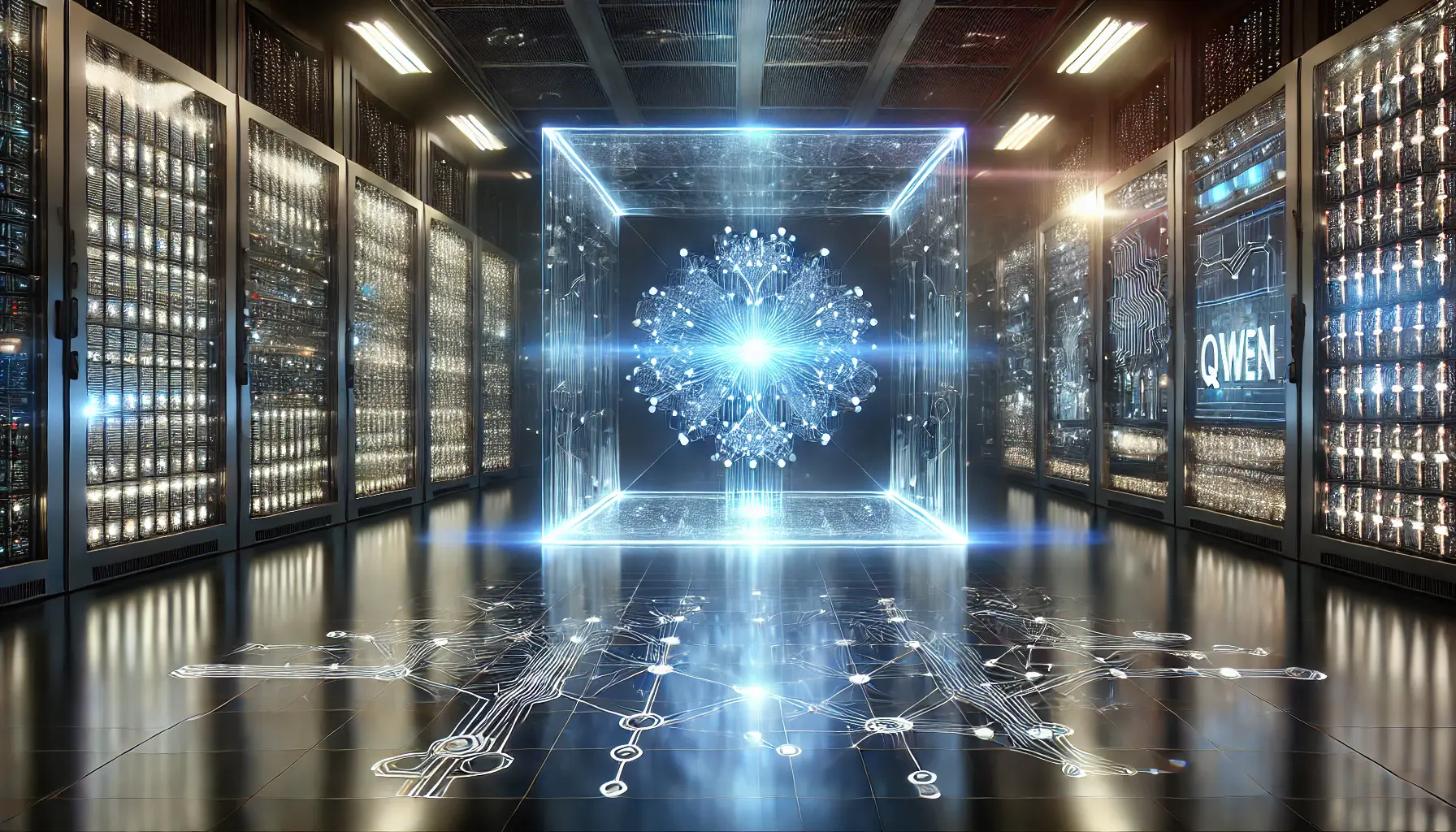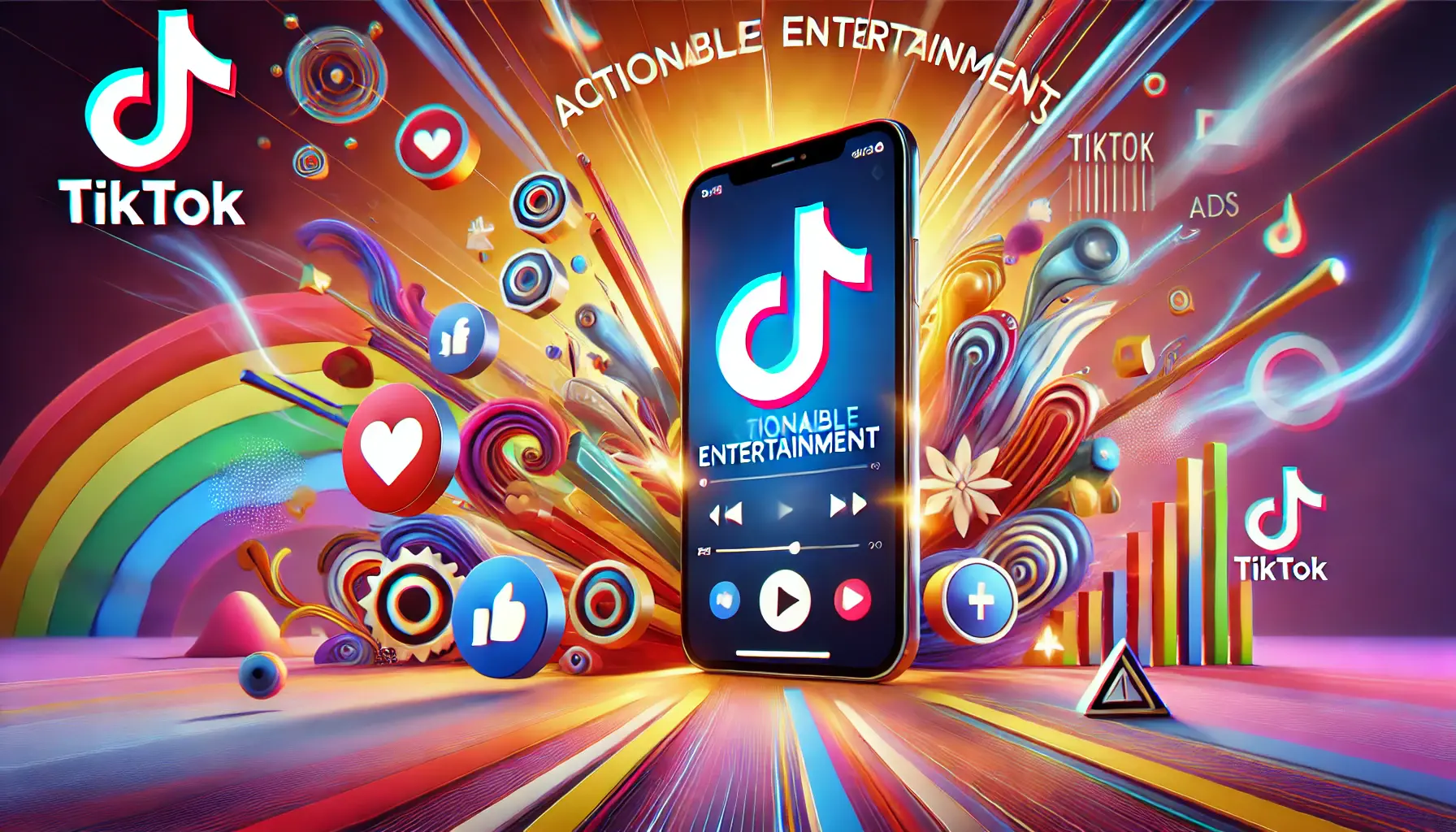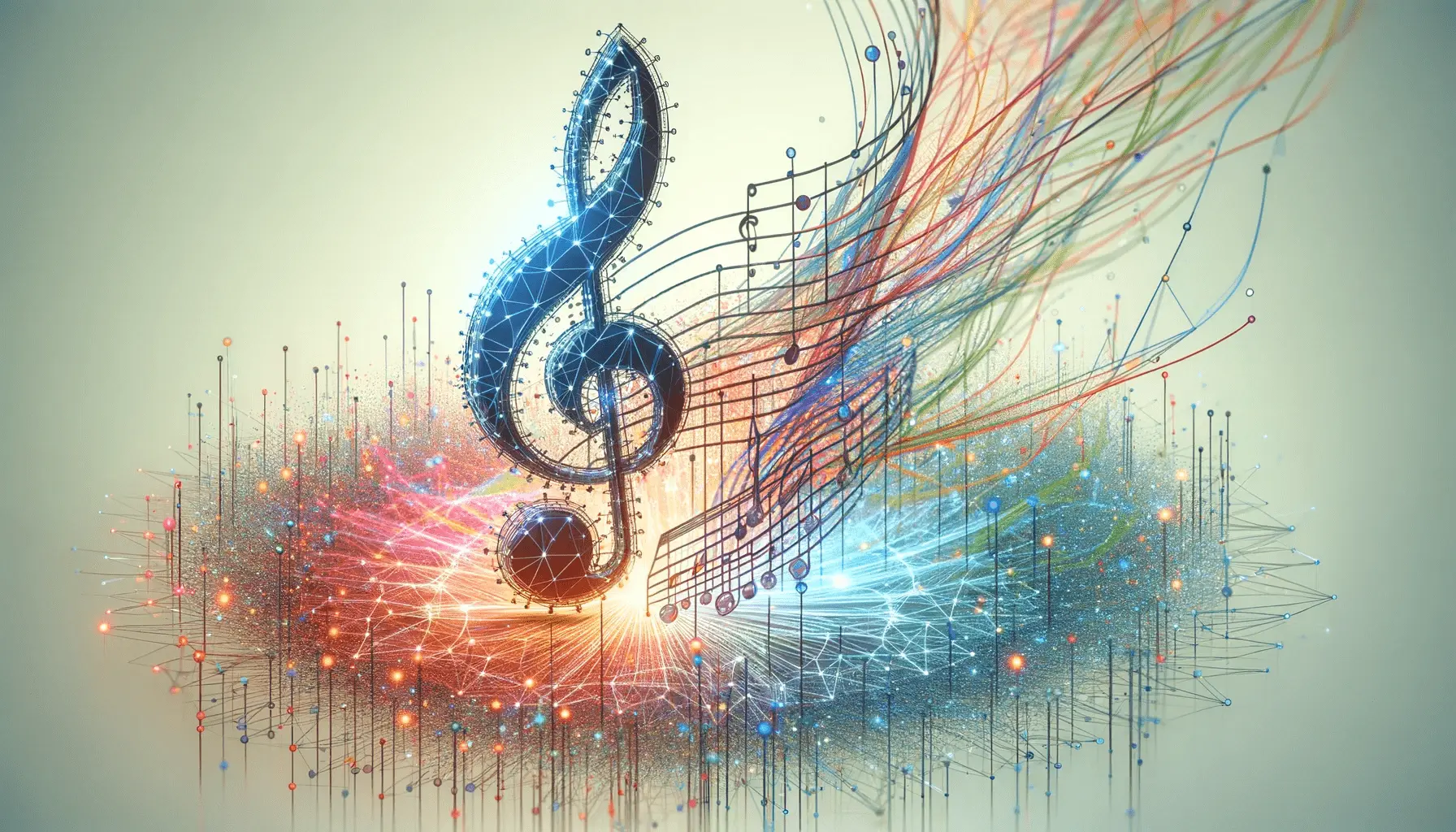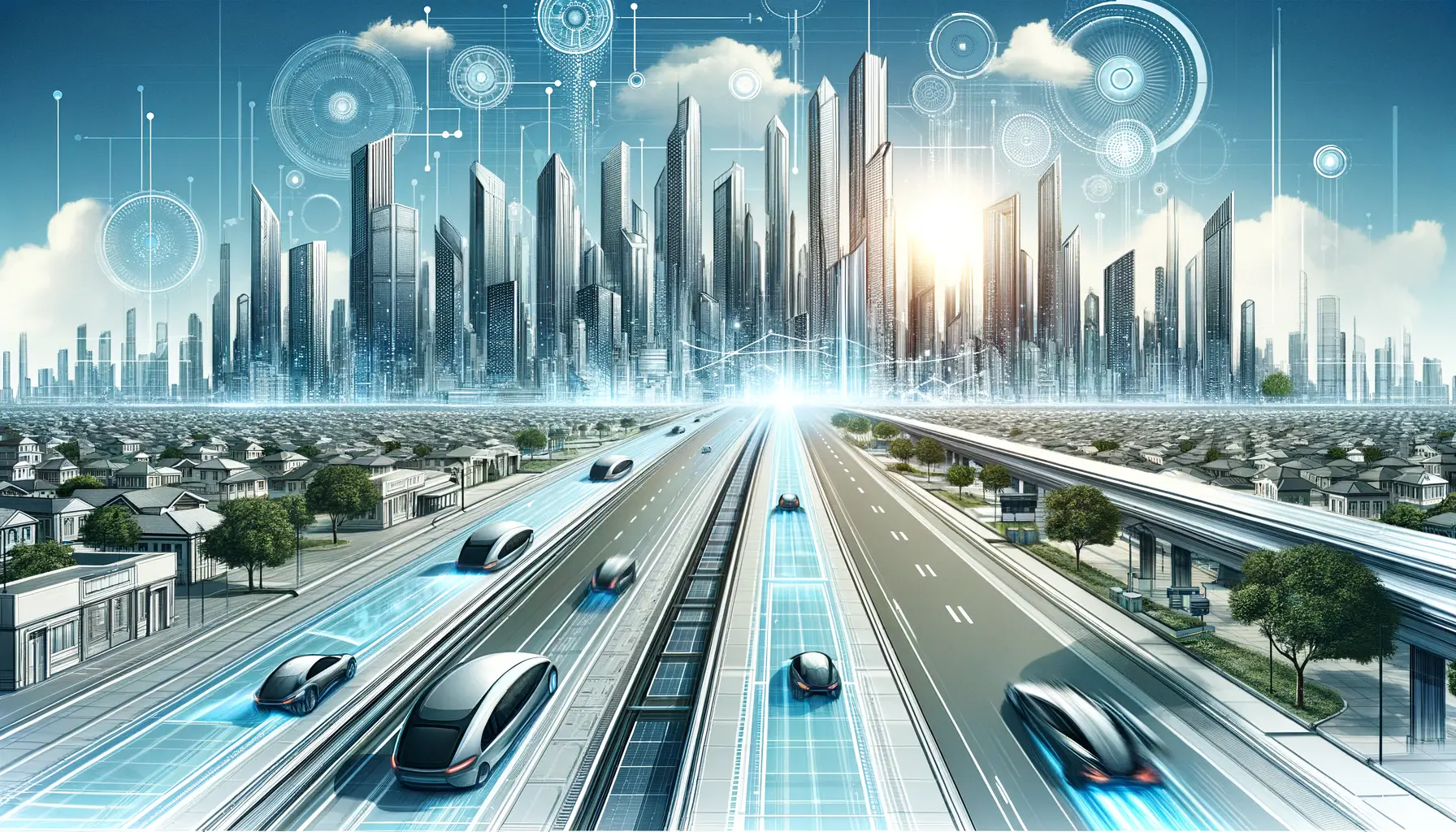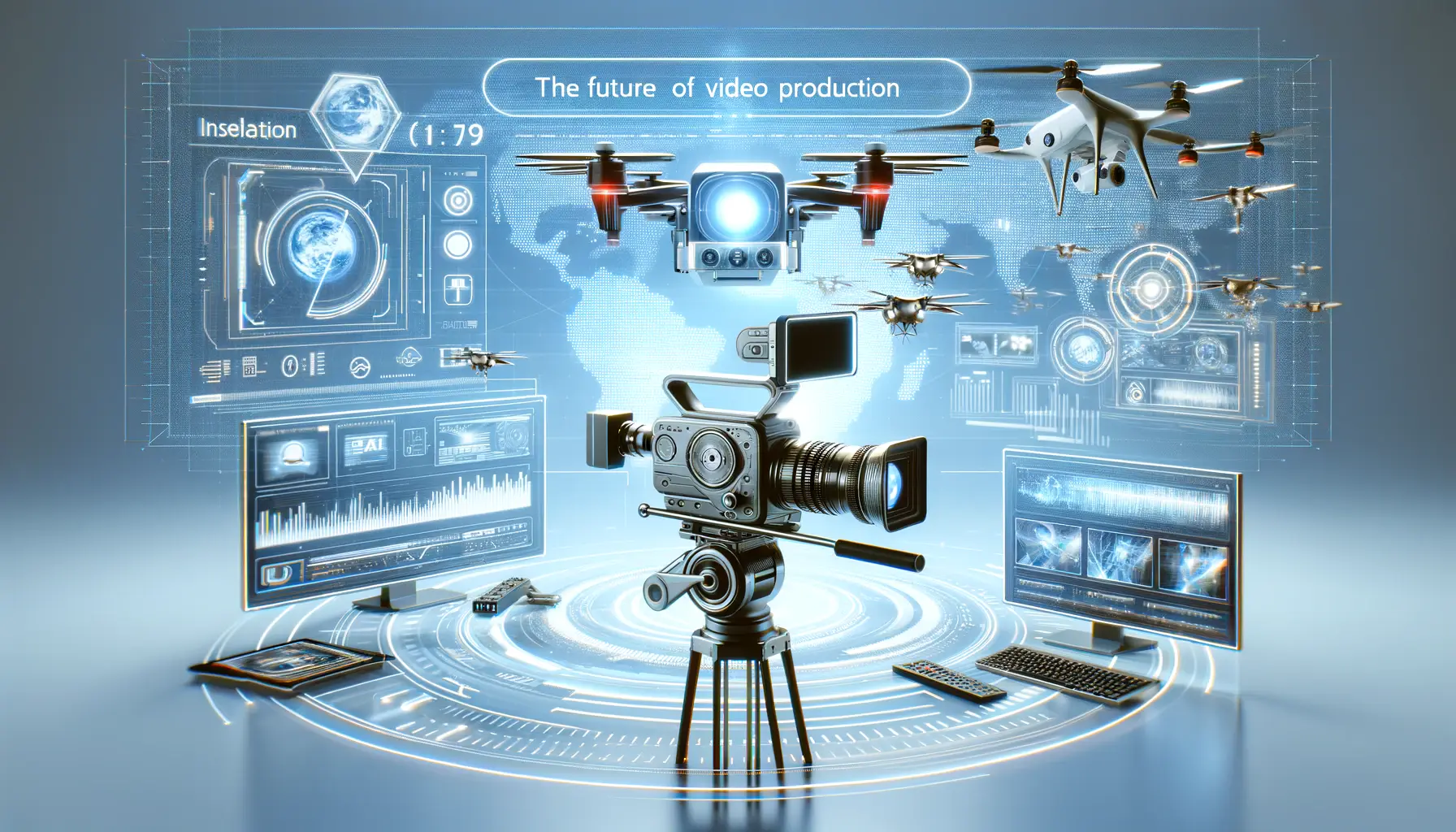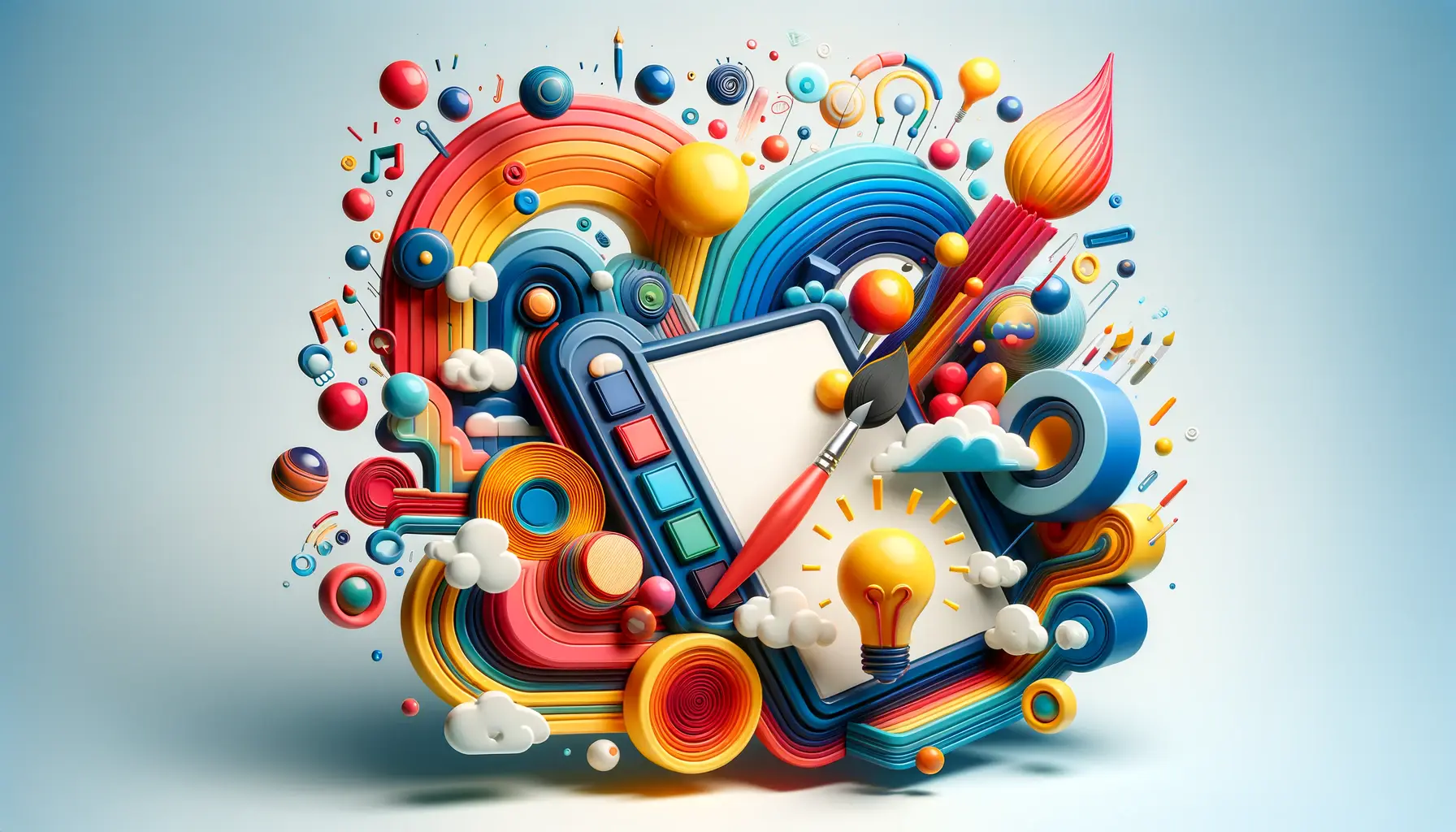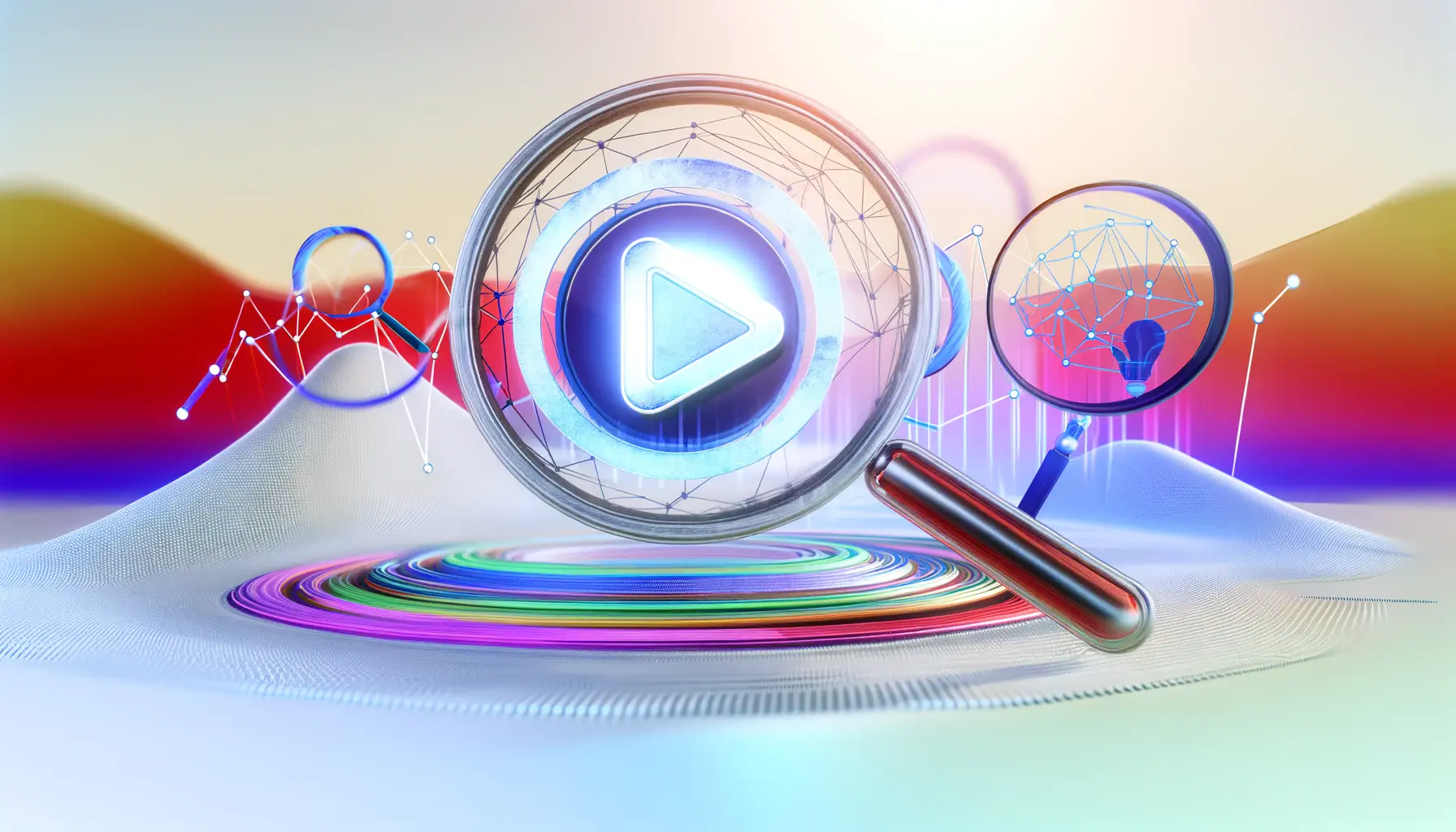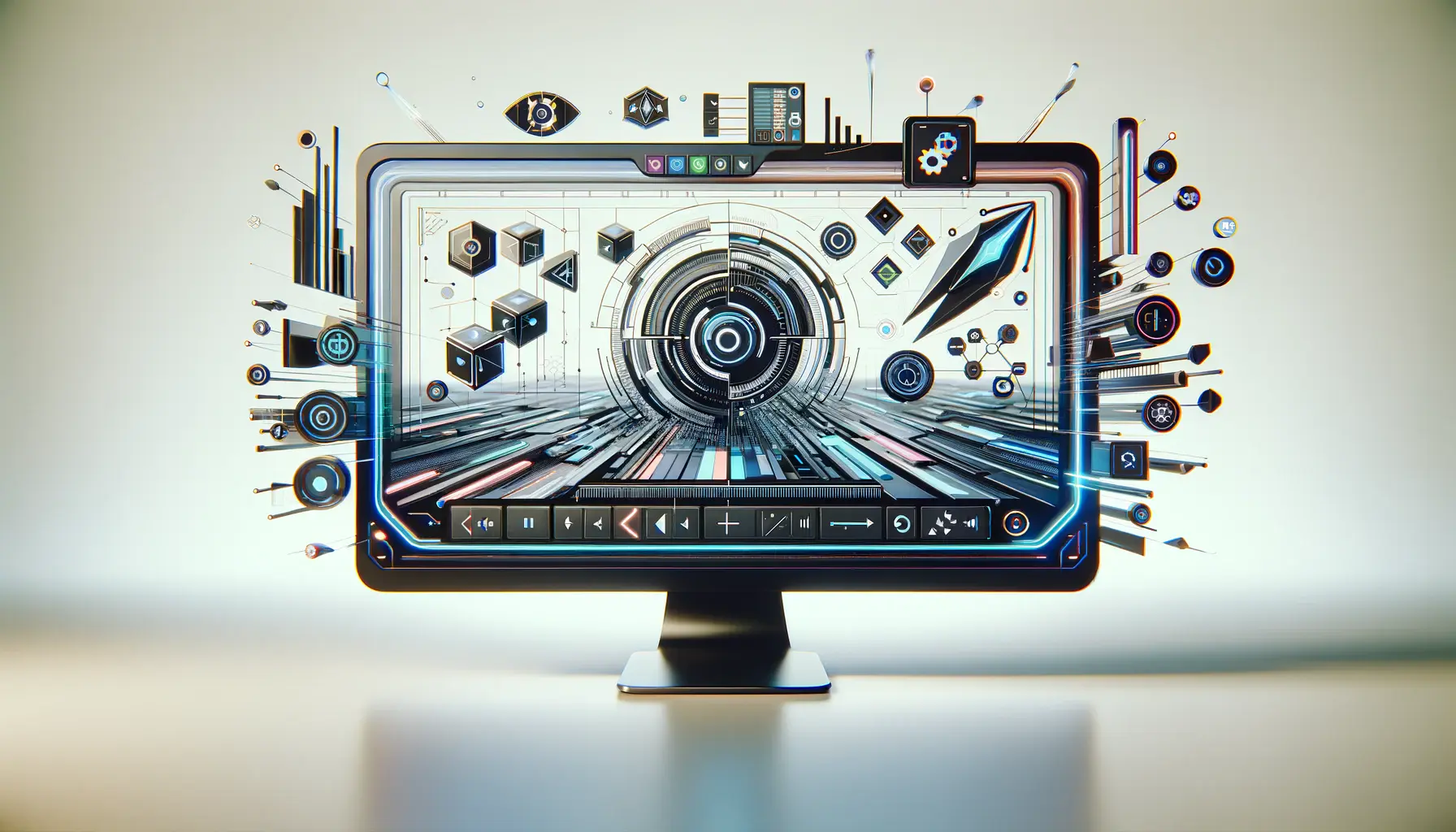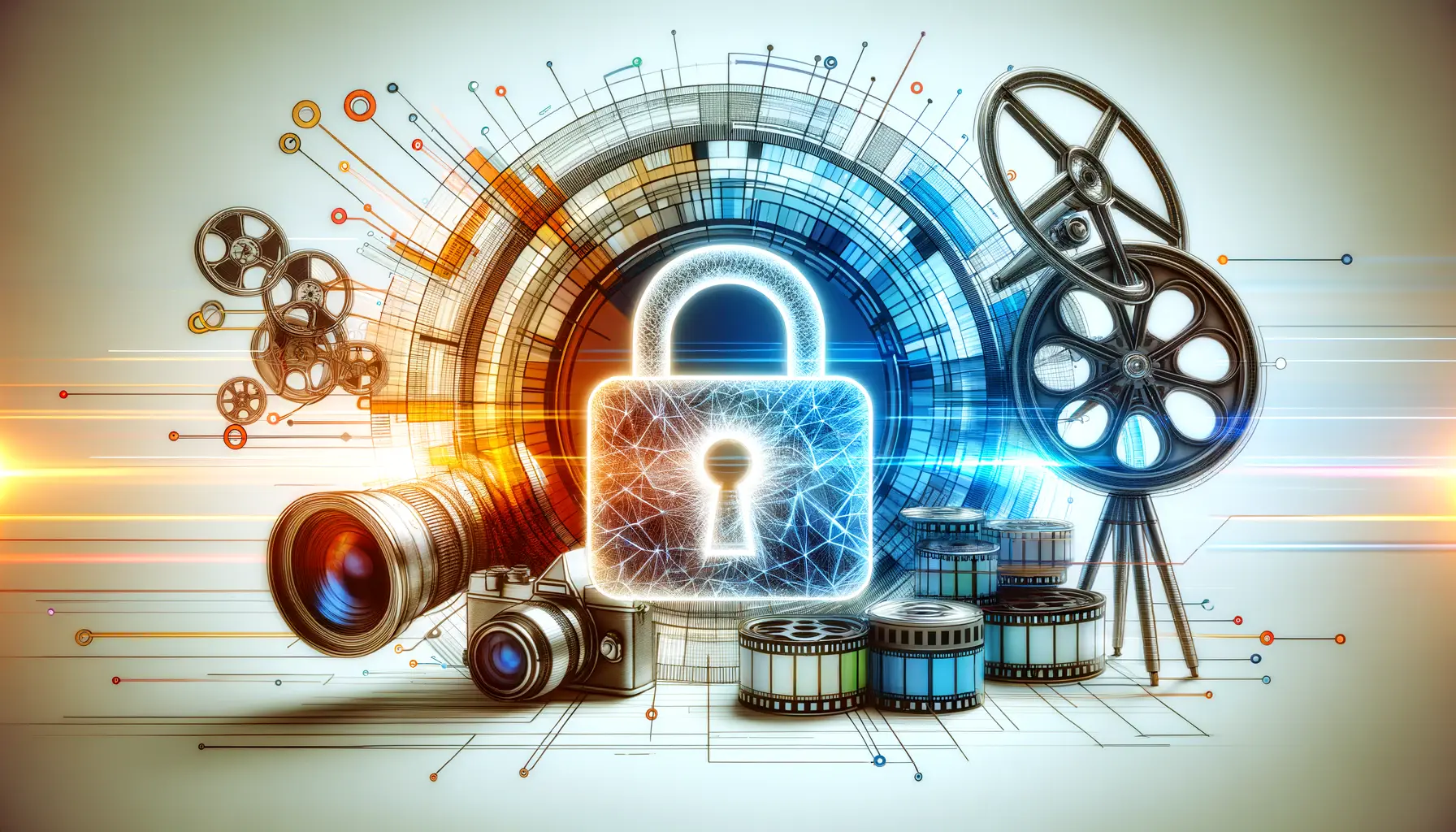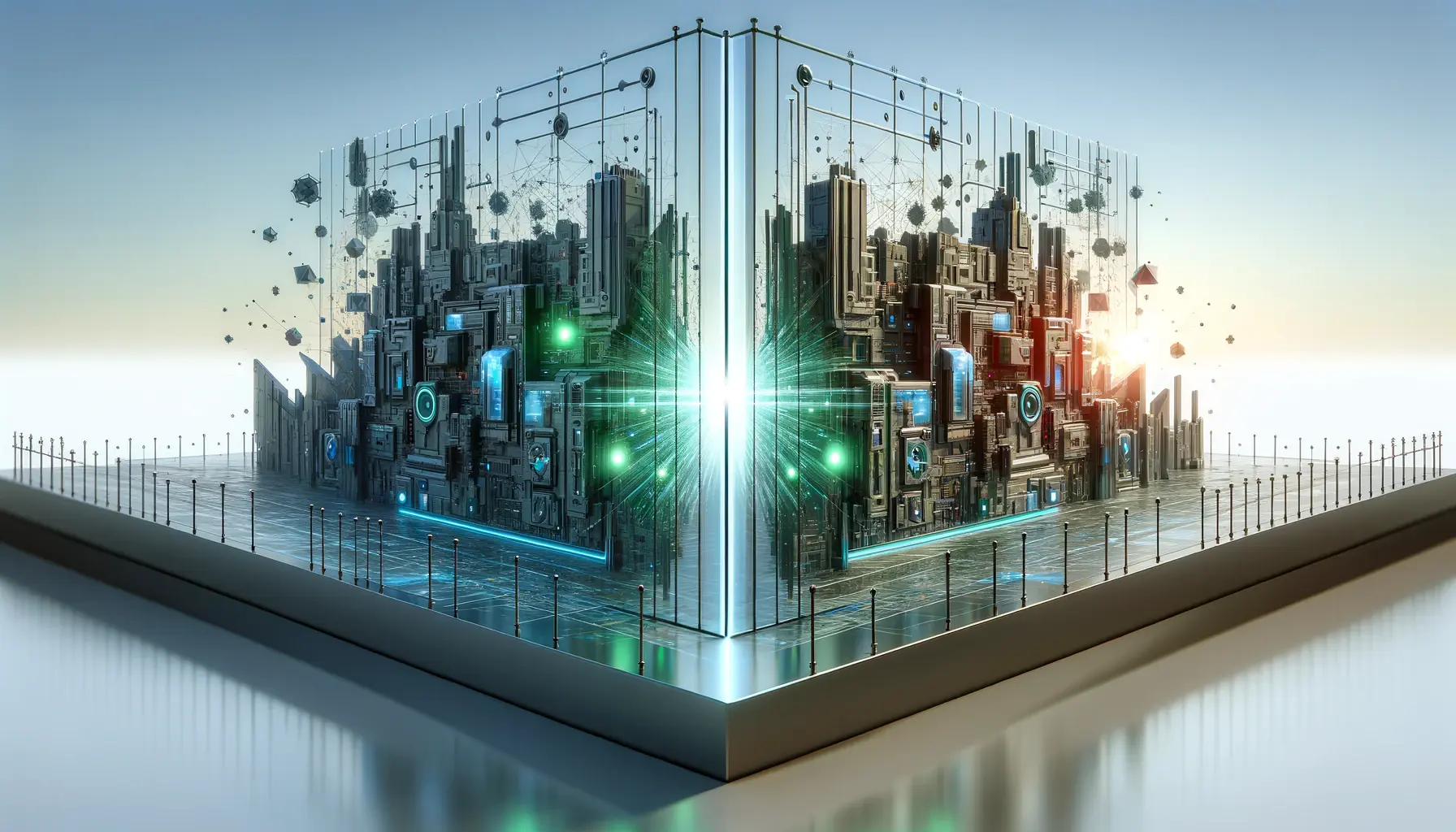The dawn of artificial intelligence in the entertainment industry has ushered in a new era of creativity and innovation.
Among the most groundbreaking developments is OpenAI’s Sora, a tool that epitomizes the fusion of AI with cinematic production.
This technology, capable of generating high-quality videos from text prompts, is not just a novelty; it represents a significant leap forward in how content is created, consumed, and perceived.
The implications of such advancements are vast, touching upon aspects of creativity, production efficiency, and even the very nature of storytelling.
As we delve into the future of AI in entertainment, it’s essential to understand the role of technologies like Sora.
They are not merely tools for automating tasks but are becoming integral to the creative process, offering new ways to visualize stories and bring them to life.
This evolution is reshaping the landscape of the entertainment industry, challenging traditional production methods, and opening up unprecedented opportunities for creators and audiences alike.
- The Advent of AI in Cinematic Creation
- Challenges and Ethical Considerations
- AI’s Role in Personalizing Viewer Experiences
- AI in Enhancing Creativity and Collaboration
- Overcoming Limitations and Misconceptions
- Future Trends and Innovations in AI Entertainment
- Strategies for Integrating AI in Entertainment Projects
- Embracing the Future of AI in Entertainment
- FAQs: Sora and the Future of AI in Entertainment
The Advent of AI in Cinematic Creation
Revolutionizing Content Production
The introduction of AI technologies such as Sora into the entertainment sector has revolutionized the way content is produced.
By enabling creators to generate complex scenes and videos from simple text prompts, Sora has significantly reduced the barriers to entry for high-quality video production.
This democratization of content creation allows for a more diverse range of voices and stories to be heard, enriching the cinematic landscape with fresh perspectives and innovative storytelling techniques.
Moreover, the efficiency and speed at which AI can produce content are unparalleled.
Traditional methods of filmmaking, involving extensive human labor, time, and financial resources, can limit the scope of projects.
In contrast, AI-driven tools like Sora empower creators to experiment with ideas and visualize their narratives without the constraints of conventional production processes.
This shift not only accelerates the development cycle of projects but also encourages a culture of experimentation and creativity within the industry.
AI technologies like Sora are transforming the entertainment industry by making high-quality video production more accessible and efficient.
Enhancing Creative Possibilities
The capabilities of AI extend beyond mere production efficiency; they also enhance the creative possibilities available to filmmakers and content creators.
With tools like Sora, creators can explore complex visual narratives and experiment with storytelling elements that would be challenging or impossible to achieve through traditional means.
This ability to push the boundaries of creativity not only leads to more engaging and visually stunning content but also expands the horizons of what can be imagined and realized on screen.
Furthermore, AI’s capacity to understand and interpret text prompts into detailed videos introduces a new level of collaboration between technology and human creativity.
This symbiotic relationship encourages creators to think outside the box, leveraging AI’s computational power to explore new narrative dimensions and visual styles.
As AI technologies continue to evolve, we can expect them to play an increasingly significant role in shaping the future of storytelling, enabling creators to bring their most ambitious visions to life.
Challenges and Ethical Considerations
While the integration of AI like Sora into entertainment production heralds a new age of innovation, it also brings forth significant challenges and ethical considerations.
The rapid advancement and application of AI technologies in creative fields raise questions about authenticity, copyright, and the potential displacement of human jobs.
Understanding these concerns is crucial for navigating the future landscape of AI in entertainment responsibly.
Authenticity and Originality
The use of AI to generate content has sparked a debate over the authenticity and originality of AI-created works.
As AI models like Sora become capable of producing complex videos from textual prompts, distinguishing between human-created and AI-generated content becomes increasingly challenging.
This blurring of lines raises concerns about the value we place on human creativity and the potential for AI to dilute the uniqueness of individual artistic expression.
The importance of maintaining a clear distinction between human and AI contributions to creative works.
- The need for transparent labeling of AI-generated content to preserve the integrity of human creativity.
Copyright and Intellectual Property Issues
Another critical challenge is the impact of AI on copyright and intellectual property rights.
As AI models learn from vast datasets that include copyrighted material, the content they generate could inadvertently infringe on existing copyrights.
This issue not only poses legal challenges but also ethical questions regarding the ownership of AI-generated works and the rights of the original content creators.
- Strategies for ensuring AI-generated content respects copyright laws and intellectual property rights.
- Developing frameworks for attributing and compensating original creators for their contributions to AI training datasets.
Impact on Employment in the Entertainment Industry
The automation potential of AI technologies like Sora also prompts concerns about the future of employment in the entertainment industry.
While AI can enhance efficiency and open new creative avenues, it may also displace jobs traditionally held by humans, from scriptwriting to cinematography.
Balancing the benefits of AI with the need to protect and evolve human roles in entertainment is a critical challenge that industry stakeholders must address.
- Exploring new job roles and career paths that AI advancements could create within the entertainment sector.
- Investing in education and training programs to equip industry professionals with the skills needed to work alongside AI technologies.
AI’s Role in Personalizing Viewer Experiences
The advent of AI in entertainment extends beyond content creation, significantly impacting how content is delivered and personalized for viewers.
Personalization, powered by AI algorithms, is reshaping the viewer experience, making it more engaging and tailored to individual preferences.
This evolution in content consumption underscores the transformative potential of AI in creating more immersive and satisfying entertainment experiences.
At the heart of AI-driven personalization is the ability to analyze vast amounts of data to understand viewer preferences and behaviors.
By leveraging this data, streaming platforms and content creators can curate content recommendations, adjust storytelling elements, and even modify narratives in real-time to suit the tastes of different audience segments.
This level of personalization not only enhances viewer engagement but also fosters a deeper connection between audiences and the content they consume.
Customized Content Recommendations
- Utilizing viewer watch history and interaction data to suggest content that aligns with individual preferences.
- Improving content discoverability and keeping audiences engaged with a continuous stream of personalized recommendations.
Adaptive Storytelling
Another exciting application of AI in personalizing viewer experiences is adaptive storytelling.
This innovative approach allows for dynamic changes in storylines based on viewer feedback or choices, offering a unique viewing experience for each audience member.
Adaptive storytelling not only makes content more interactive but also opens up new possibilities for narrative complexity and viewer engagement.
- Developing interactive narratives that adapt to viewer choices, creating a personalized storytelling experience.
- Enhancing viewer engagement by allowing audiences to influence the direction of the story, leading to multiple story outcomes.
Enhancing Viewer Engagement with AI
AI’s capability to personalize entertainment experiences goes beyond content recommendations and adaptive storytelling.
It also includes optimizing streaming quality, generating interactive content, and even creating virtual reality (VR) and augmented reality (AR) experiences.
These advancements are making entertainment more immersive, interactive, and accessible, thereby significantly enhancing viewer engagement.
The potential for AI to revolutionize viewer experiences through personalized, interactive, and immersive content.
- Exploring the integration of AI with VR and AR technologies to create deeply immersive entertainment experiences.
AI in Enhancing Creativity and Collaboration
The integration of AI like Sora into the entertainment industry is not just transforming production processes and viewer experiences; it’s also enhancing creativity and collaboration among artists and creators.
AI’s role as a creative partner is becoming increasingly recognized, offering tools and insights that can inspire new forms of artistic expression and facilitate collaborative projects on a scale previously unimaginable.
AI’s ability to process and generate content based on vast datasets allows it to serve as a muse and assistant to creators, providing them with a springboard for innovation.
This partnership between human creativity and machine intelligence is fostering a new era of artistic exploration, where the limitations of human capability are expanded by AI’s computational power.
Inspiring New Artistic Expressions
- AI’s role in offering novel perspectives and ideas that can spark creative inspiration among artists and filmmakers.
- The use of AI-generated content as a basis for exploring new themes, narratives, and visual styles in storytelling.
Facilitating Global Collaborations
Moreover, AI technologies are breaking down geographical and logistical barriers to collaboration, enabling creators from different parts of the world to work together more seamlessly.
By automating certain aspects of the creative process, AI allows artists to focus on the core creative aspects of their projects, fostering a more efficient and harmonious collaborative environment.
- Enabling real-time collaboration across different time zones and locations, reducing the time and costs associated with traditional content production.
- Creating platforms for shared creative workspaces where ideas, feedback, and AI-generated content can be easily exchanged among collaborators.
Expanding the Creative Toolkit
AI is also expanding the creative toolkit available to artists and creators, offering new ways to visualize, design, and execute their visions.
From AI-powered visual effects and animation to the generation of music and soundscapes, the range of creative tasks that AI can assist with is continually growing.
This expansion not only enhances the quality and diversity of content but also democratizes the creative process, making sophisticated tools accessible to a broader range of creators.
The emergence of AI as a powerful tool in the creative toolkit, offering new capabilities in visual effects, animation, and sound design.
- How AI is making advanced creative tools more accessible to independent creators and small production teams, leveling the playing field in the entertainment industry.
Overcoming Limitations and Misconceptions
As the entertainment industry continues to embrace AI technologies like Sora, it’s crucial to address and overcome the limitations and misconceptions that accompany their adoption.
While AI offers a plethora of opportunities for innovation and efficiency, understanding its boundaries and the myths surrounding its capabilities is essential for its effective and ethical application.
One common misconception is the fear that AI will replace human creativity and intuition in the creative process.
However, AI should be viewed as a tool that enhances and extends human capabilities rather than replacing them.
By working in tandem with AI, creators can leverage its computational power to explore new creative frontiers while retaining the emotional depth and nuance that only human experience can provide.
Addressing AI’s Creative Boundaries
- Recognizing the inherent limitations of AI in understanding complex human emotions and cultural nuances in storytelling.
- Emphasizing the importance of human oversight in guiding AI-generated content to ensure it aligns with ethical standards and artistic intentions.
Demystifying AI in Entertainment
Another challenge lies in demystifying AI for the broader entertainment community.
There’s a need for education and dialogue about what AI can and cannot do, dispelling myths that contribute to unrealistic expectations or unfounded fears.
By fostering a deeper understanding of AI’s role and potential, the industry can better navigate the integration of these technologies into creative workflows.
- Implementing educational programs and resources to equip creators with the knowledge to effectively utilize AI in their projects.
- Encouraging open discussions about the ethical use of AI in content creation, including issues related to copyright, consent, and representation.
Enhancing AI Transparency and Accountability
Transparency and accountability in the development and deployment of AI technologies are paramount for their acceptance and success in the entertainment industry.
Creators, audiences, and regulators must have a clear understanding of how AI models like Sora are trained, the data they use, and the mechanisms in place to address potential biases or ethical concerns.
Establishing trust in AI systems through transparency can pave the way for their more widespread and responsible use in entertainment.
The critical role of transparency in building trust between AI developers, content creators, and the public.
- Developing standards and practices for ethical AI use, including fairness, privacy, and the avoidance of harmful biases in AI-generated content.
Future Trends and Innovations in AI Entertainment
The trajectory of AI in the entertainment industry points towards a future brimming with trends and innovations that promise to redefine the landscape of content creation and consumption.
As technologies like Sora continue to evolve, we stand on the cusp of witnessing unprecedented changes that will shape the future of entertainment in ways we are only beginning to imagine.
One of the most exciting prospects is the further integration of AI with emerging technologies such as virtual reality (VR), augmented reality (AR), and mixed reality (MR).
This convergence is expected to create immersive entertainment experiences that blur the lines between the digital and physical worlds, offering audiences new ways to interact with content that is more engaging and lifelike than ever before.
Immersive and Interactive Entertainment
- Developing VR, AR, and MR experiences that leverage AI for real-time content generation and personalization, enhancing the immersion and interactivity of digital environments.
- Exploring the potential for AI-driven narratives that adapt to user interactions, offering personalized storylines and experiences within immersive settings.
AI in Game Development
Another area ripe for innovation is the use of AI in game development.
AI can revolutionize game design by generating dynamic game environments, creating complex non-player characters (NPCs) with realistic behaviors, and personalizing gameplay based on player preferences.
This not only enhances the gaming experience but also opens up new possibilities for storytelling within games.
- Utilizing AI to automate the creation of game assets and environments, reducing development time and enabling more expansive virtual worlds.
- Implementing AI algorithms to create NPCs that learn from player interactions, providing a more challenging and varied gaming experience.
AI-Generated Music and Sound Design
The application of AI is not limited to visual content; it also extends to music and sound design.
AI-generated music and sound effects can be tailored to enhance the emotional impact of movies, games, and other forms of entertainment, providing a richer auditory experience.
As AI models become more sophisticated, they could even collaborate with composers and sound designers, offering new tools for creative expression in the auditory realm.
The misconception that AI-generated music lacks the emotional depth of human-composed music is being challenged by advancements in AI technology.
- Exploring the use of AI to generate adaptive soundtracks that change based on narrative developments or viewer reactions, adding a new layer of immersion to entertainment experiences.
Strategies for Integrating AI in Entertainment Projects
As the entertainment industry continues to explore the vast potential of AI, adopting effective strategies for integrating these technologies into projects is essential.
The successful incorporation of AI, such as OpenAI’s Sora, into entertainment production not only enhances creative possibilities but also ensures these tools are used ethically and effectively.
Here, we outline key strategies for integrating AI into entertainment projects, ensuring creators can leverage these advancements to their fullest potential.
Understanding the capabilities and limitations of AI technologies is the first step in their effective application.
Creators should familiarize themselves with the range of tools available, including their strengths and potential pitfalls.
This knowledge base enables the strategic selection of AI solutions that best fit the project’s goals and creative vision.
Collaborative AI Workflows
- Developing workflows that integrate AI tools seamlessly into the production process, allowing for a collaborative approach between human creators and AI technologies.
- Encouraging cross-disciplinary teams that include AI specialists, creative professionals, and ethical advisors to ensure a balanced and informed use of AI in projects.
Continuous Learning and Adaptation
AI technologies are continually evolving, with new capabilities and applications emerging regularly.
Staying abreast of these developments is crucial for creators looking to incorporate AI into their projects.
Engaging in continuous learning and being open to adapting project workflows in response to new AI advancements can lead to more innovative and effective uses of these technologies.
- Participating in industry forums, workshops, and conferences focused on AI in entertainment to exchange knowledge and experiences with peers.
- Experimenting with new AI tools and techniques in smaller-scale projects to understand their potential impact and refine their use in larger productions.
Ethical Considerations and Audience Engagement
Integrating AI into entertainment projects also involves navigating ethical considerations and understanding audience expectations.
Transparent communication about the use of AI, addressing potential biases, and considering the impact of AI-generated content on viewers are all critical components of a responsible AI strategy.
The idea that ethical use of AI in entertainment not only fosters trust with audiences but also encourages a more thoughtful and impactful application of these technologies.
- Engaging with audiences through surveys and feedback mechanisms to gauge their perceptions and acceptance of AI-generated content, using these insights to guide future projects.
Embracing the Future of AI in Entertainment
The journey through the evolving landscape of AI in entertainment, particularly with innovations like OpenAI’s Sora, reveals a future ripe with possibilities and challenges.
As we stand at the intersection of technology and creativity, the potential of AI to revolutionize the entertainment industry is undeniable.
From enhancing content creation to personalizing viewer experiences, AI is not just a tool but a transformative force reshaping the narrative and delivery of entertainment.
Unlocking Creative Frontiers
The advent of AI technologies has opened new creative frontiers, enabling storytellers and creators to explore uncharted territories of imagination.
The ability of AI to generate content from textual prompts, as demonstrated by Sora, offers a glimpse into a future where the barriers between idea and execution become increasingly blurred.
This synergy between human creativity and machine intelligence is fostering a new era of storytelling, enriched with diverse narratives and innovative visual expressions.
Navigating Ethical Waters
However, the integration of AI in entertainment is not without its ethical quandaries.
Issues of authenticity, copyright, and the impact on employment within the industry necessitate a thoughtful approach to the adoption of AI technologies.
As we chart the course forward, it is imperative to balance the benefits of AI with a commitment to ethical standards, ensuring that the future of entertainment remains vibrant, inclusive, and respectful of creative integrity.
The Path Ahead
- The continuous evolution of AI technologies like Sora promises to further blur the lines between the digital and physical realms, offering audiences experiences that are more immersive and interactive than ever before.
- Staying informed about the latest developments in AI and adapting to these changes will be crucial for creators and industry professionals aiming to leverage these technologies effectively.
- Engaging in ongoing dialogue about the ethical use of AI, and developing frameworks for transparency and accountability, will help build trust with audiences and ensure the responsible integration of AI in entertainment projects.
In conclusion, the future of AI in entertainment is a canvas yet to be fully painted.
With tools like Sora leading the charge, the possibilities for innovation are boundless.
Yet, as we embrace these advancements, we must also navigate the ethical considerations they bring.
By fostering a collaborative relationship between human creativity and AI, and prioritizing ethical considerations, the entertainment industry can move towards a future that is not only technologically advanced but also rich in diversity and creativity.
The journey ahead is complex, but the potential for a new era of entertainment, powered by AI, is a compelling narrative in its own right.
FAQs: Sora and the Future of AI in Entertainment
Explore common inquiries about the revolutionary AI technology, Sora, and its impact on the entertainment industry.
Sora is OpenAI’s text-to-video AI model that transforms written prompts into realistic video clips, leveraging advanced generative AI technology.
Currently, Sora is in a controlled testing phase, accessible to selected partners and researchers, with plans for broader access in the future.
No, Sora is designed to augment and enhance human creativity, not replace it, by providing new tools for storytelling and production.
Sora stands out for its ability to generate high-quality, detailed videos from text prompts, understanding the context and physicality of described scenes.
Sora introduces new possibilities for content creation, significantly lowering production barriers and enabling more personalized viewer experiences.
Key concerns include copyright issues, the authenticity of AI-generated content, and the potential impact on employment within creative industries.
While Sora can generate content that mimics human emotions, it does not possess the depth of understanding or empathy inherent to human creators.
Future developments may include more immersive and interactive content, deeper integration with VR/AR technologies, and further personalization of entertainment experiences.
